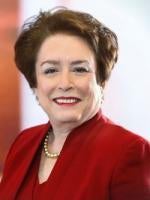Since our last issue, we have identified 31 recently unsealed health care-related whistleblower cases. In this Qui Tam Update, we analyze the trends and take an in-depth look at a few noteworthy cases.
Trends & Analysis
-
We have identified 31 health care–related qui tam cases that have been unsealed in whole or in part since the cases covered in our last Qui Tam Update.
-
A substantial majority of the unsealed cases had been under seal for periods well in excess of the required statutory period. Of the 31 complaints, 28 were filed before 2015, with three unsealed complaints dating back to 2010. Of the remaining complaints, four were filed in 2012, eight in 2013, 12 in 2014 and three in 2015. As these cases illustrate, lengthy extensions of the seal on qui tam actions continue to be routine.
-
The cases identified were filed in federal district courts in 18 states, including multiple cases in California (3), New York (4), Florida (4), Kentucky (2), Massachusetts (2), Ohio (2), and Pennsylvania (3).
-
The federal government declined to intervene, or elected not to intervene at this time, in 23 of the 31 cases. The federal government intervened, in whole or in part, in eight cases.
-
Nature of the Claims
-
15 of the recently unsealed cases involved both state and federal claims.
-
Nine involved allegations of unlawful kickbacks. Of these nine, five also alleged violations of the Stark Law.
-
Claims for relief under state or federal anti-whistleblower retaliation provisions appeared in six of the 31 recently unsealed cases.
-
-
In nearly two-thirds of the unsealed cases (20 of 31), relators were current or former employees of the defendant. In two cases, the relator’s relationship to the defendant was not revealed by the unsealed filings.
Featured Unsealed Cases
United States ex rel. Florida Society of Anesthesiologists v. Choudhry et al., No. 8:13-cv-02603 (M.D. Fla. Oct. 9, 2013)
Complaint Filed: October 9, 2013.
Complaint Unsealed: March 24, 2016.
Intervention Status: On March 18, 2016, the United States declined to intervene.
Claims: False claims to Medicare in violation of the Civil False Claims Act (“FCA”), 31 U.S.C. § 3729 et seq., premised on a false certification of compliance with the Anti-Kickback Statute (“AKS”), 42 U.S.C. § 1320a-7b(b). Violation of the Florida False Claims Act, Fla. Stat., § 68.081 et seq.
Name of Relator: Florida Society of Anesthesiologists
Defendants’ Business: The defendants operate physician practices, anesthesia service companies and ambulatory surgical centers.
Relator’s Relationship to Defendants: Relator, a professional society representing about 2,000 Florida anesthesiologists, alleged that defendants—some of whom are not anesthesiologists—violated the FCA and AKS in connection with the provision of anesthesiology services by entities owned by defendants.
Relator’s Counsel: Vezina Law, PLC; James Hoyer, Newcomer & Smiljanich, P.A.
Summary of Case: Relator alleged that over 50 physicians, surgery centers and anesthesiology companies engaged in a kickback scheme that defrauded the federal government and the State of Florida.
The complaint alleges two different schemes.
Alleged Scheme with Umesh Choudhry, M.D.
The first scheme involves Dr. Umesh Choudhry, a gastroenterologist who owns two companies that provide anesthesia services to ambulatory surgical centers (“ASCs”) in Florida. According to the complaint, Dr. Choudhry allegedly secured exclusive contracts to provide anesthesiology services for a number of ASCs. The complaint contends that Dr. Choudry purportedly paid kickbacks to the owners of certain ASCs in exchange for their referrals to Choudhry’s anesthesiology companies. Dr. Choudhry and the physician owners of one of the ASCs also purportedly received a share of the anesthesia contract revenue of one of Dr. Choudhry’s companies through what the complaint refers to as an “undisclosed agreement.”
According to the complaint’s allegations, each of the ASCs had previously used the services of Bay Area Anesthesiology (“BAA”)—not one of Dr. Choudhry’s entities—but had terminated these arrangements after Dr. Choudhry allegedly offered the ASCs a portion of the anesthesia fees in exchange for their referrals of patients to Dr. Choudhry’s entities. The relator further alleges that the kickbacks affected patient treatment: before the arrangement, one ASC had purportedly used anesthesia in approximately 60% of its procedures, but later, after the alleged kickbacks were in place, the ASC allegedly used anesthesia in nearly 100% of its procedures.
Alleged Scheme with Jack Groover, M.D.
The complaint also alleges kickback violations against Dr. Jack Groover, a gastroenterologist, and entities owned by Dr. Groover. According to the relator, a surgery center owned by Dr. Groover entered into an exclusive arrangement with an anesthesiology practice also owed by Dr. Groover. The relator asserts that Dr. Groover and other non-anesthesiologists improperly received revenue from the anesthesia services provided under that contract. Additionally, the complaint alleges that Dr. Groover used his reputation and large practice to “dictate to other ASCs that he would refer his patients to those ASCs if they used one of his anesthesia service companies.”
Current Status: On March 18, 2016, the United States declined to intervene “at this time.” The relator filed a second amended complaint on June 7, 2016. Several defendants have filed motions to dismiss the second amended complaint. The case is ongoing.
Reasons to Watch: This is the first time that we have seen a medical society file a qui tam action against physicians and their related entities, and it shows that qui tam relators can come from any part of the health care landscape. Just as some relators bring qui tam actions targeting their competitors, this case could signal a movement toward professional societies bringing qui tam cases against individuals or entities that compete with the society’s members.
This case is also an important example of the potential for FCA liability arising out of the complex relationships between individual physicians, ambulatory surgery centers and anesthesia service companies. The risks facing the anesthesia industry were highlighted in 2012 when the OIG published Advisory Opinion No. 12-06. This advisory opinion – referenced at length in the relator’s amended complaint – addressed a similar arrangement between an ASC and anesthesia service provider. The requestor of that advisory opinion offered, among other things, a proposed arrangement through which the ASC’s physician owners would form a wholly owned subsidiary to provide anesthesia services to the ASC’s patients. The OIG noted that the ASC safe harbor did not apply to this proposed arrangement because the safe harbor protects only the remuneration between the subsidiaries and the ASC and not the distribution of profits that the physician owners would receive from the ASC. More fundamentally, the OIG underscored its continued skepticism of arrangements where physicians expand into a related line of business that is arguably dependent on their own referrals. It remains to be seen whether the court will concur with the OIG’s advisory opinion and whether the evidence in this declined case will be sufficient to substantiate the relator’s allegations.
United States of America ex rel. Henson v. Midwest Family Practice, PLC and Dr. Hussein Awada, C.A. No. 2:13-cv-14579 (E.D. Mich.)
Complaint Filed: November 1, 2013
Complaint Unsealed: March 18, 2016
Intervention Status: The government intervened in the case and filed a complaint in intervention on March 29, 2016.
Claims: The relator originally brought three claims under the FCA: Count I - 31 U.S.C. § 3729(a)(1)(A) (false claims) and 31 U.S.C. § 3729(a)(1)(B) (false statements); Count II - 31 U.S.C. § 3729(a)(1)(C) (conspiracy); and Count III - 31 U.S.C. § 3729(a)(1)(G) (“reverse” false claims). In the Complaint in Intervention, the government asserted two FCA claims under 31 U.S.C. § 3729(a)(1)(A) and (a)(1)(B). The government also brought common law claims for (1) unjust enrichment and constructive trust, and (2) payment by mistake.
Name of Relator: Heather Henson
Relator’s Relationship to Defendant: Former employee. Relator was a medical receptionist for Midwest Family Practice, PLC (“Midwest”) for six months.
Relator’s Counsel: Mike Kanovitz, Anand Swaminathan, and Vincenzo Field of Loevy & Loevy.
Summary of Case: On November 1, 2013, Relator filed an FCA complaint against both Midwest and Dr. Awada alleging, among other things, that Midwest purportedly billed Medicare for physician services, prescriptions, and diagnostic tests that were not medically necessary or were not provided.
Relator was employed by Midwest as a “medical receptionist” for six months. In that role, the relator scheduled patient visits, maintained patient charts, and pulled patient charts for auditing. Her qui tam complaint identifies a number of allegedly fraudulent schemes. First, Dr. Awada purportedly agreed with a patient recruiter, James Lyons, to write medically unnecessary prescriptions for patients whom Mr. Lyons recruited. Second, defendants allegedly provided medically unnecessary diagnostic tests such as x-rays, ultrasounds, and echocardiograms without consultation with a doctor; performed bloodwork based on standing orders; and provided unnecessary services such as injections for joint pain. Third, the relator contended that defendants falsified billing and medical records.
In a separate criminal action, based on an investigation conducted by the Drug Enforcement Agency (“DEA”), Dr. Awada pled guilty to health care fraud (18 U.S.C. § 1347) and conspiracy to distribute controlled substances (21 U.S.C. § 846). According to the relator’s complaint, she and “other sources” informed the DEA in August 2011 (before filing the FCA Complaint) that Dr. Awada was purportedly engaging in fraudulent billing practices and working with a patient recruiter to distribute controlled substances.
The government intervened in the case and filed a superseding complaint in intervention, which relies on Medicare’s conditions of payment and contends that Medicare will not pay for services that are not “medically justified.”
The complaint in intervention alleges that defendants’ Medicare claims, as well as records or statements material to these claims, were false or fraudulent because certain services were not provided at all; physician services and diagnostic tests were not medically necessary; and prescriptions for controlled substances were not medically necessary. Although not expressly alleged in the FCA causes of action, it appears that the government bases its theory that defendants’ claims and statements were false on defendants’ allegedly false certifications that services, tests, and prescriptions were provided and were medically necessary. Specifically, the government contends that defendants signed a series of certifications contained in the 855-A form (for each agency) and the 855-I form (for each physician) that claims would comply with “Medicare laws, regulations, and program instructions” as well as “all application [sic] conditions of participation in Medicare.” In addition, the complaint in intervention points to provisions of an agreement with the government permitting electronic billing of claims providing, among other things, that “services were performed as billed.”
Current Status: On April 12, 2016, Defendants filed an answer to the complaint in intervention. The parties filed a discovery plan and the case is ongoing.
Reasons to Watch: This case is noteworthy because the FCA allegations rely on the alleged lack of medical necessity for certain prescriptions, services, and tests. We have observed an ongoing stream of cases based on the purported lack of medical necessity. Recently, medical necessity figured prominently in a closely watched FCA case, United States v. AseraCare Inc., No. 12-cv-00245-KOB (N.D. Ala.). As reported by our colleagues Laurence Freedman and Samantha Kingsbury, the court there rejected the government’s FCA theory that hospice services were not medically necessary, and thus claims were false, where the government relied on expert opinions about medical necessity. In that case, the defendants’ medical expert disagreed with the government’s medical expert about medical necessity. The court decided that where medical experts disagree about whether medical records support hospice eligibility, the opinion of one medical expert alone cannot prove falsity without further evidence of an objective falsehood. The decision in AseraCare suggests that the government may have difficulty in proving falsity in some medical necessity cases.
This case is also notable because, in addition to the FCA claims, the government’s complaint in intervention asserts common law claims for (1) unjust enrichment and constructive trust; and (2) payment by mistake. In cases where the government intervenes, we have noticed that the government often includes common law claims in addition to FCA claims. The elements of these common law claims are different from the elements of FCA claims (which require “knowledge”) and the potential recoveries are different; the common law claims do not include per-claim penalties or treble damages. For the two common law claims, the complaint in intervention seeks, respectively, (1) the amounts by which defendants were unjustly enriched, and (2) the amounts the government paid by mistake. In addition, for both common law claims, the government seeks interest, costs, and expenses.
United States of America ex rel. Duncan v. Nexus Lab, Inc., Nexus Lab, LLC, PremierTox 2.0, Inc. et al., Case No. 1:14-cv-00089 (W.D. Kent.)
Complaint Filed: July 3, 2014.
Complaint Unsealed: March 9, 2016.
Intervention Status: The government intervened in part on March 1, 2016.
Claims: False claims to Medicare in violation of the FCA, 31 U.S.C. § 3729 et seq. premised on false certification of compliance with the AKS, 42 U.S.C. § 1320a-7b(b).
Name of Relator: Eric Duncan
Relator’s Relationship to Defendant: Former CEO of defendant PremierTox.
Relator’s Counsel: Adam K. Neel, Tachau Meek PLC; Andrew R. Smith and William Messer, Miller & Wells, PLLC; and David S. Kaplan, Kaplan & Partners, LLP
Summary of Case: In July 2014, the relator filed a qui tam action against Nexus Labs, PremierTox, and its owners for alleged violations of the FCA, including violations premised on non-compliance with the AKS. PremierTox, which did business as Nexus in Kentucky and Tennessee, is a medical testing facility that performs drug urine screening services. Mr. Duncan was employed as PremierTox’s CEO from 2011 through September 2013.
Relator’s complaint includes numerous allegations.
First, relator alleges that Nexus/PremierTox was paying a Kentucky physician a fee for sending her specimens to the laboratory for testing in violation of the AKS.
Second, he contends that the owners of Nexus and PremierTox laboratories purportedly were providing physician offices with point of care testing (“POCT”) Cups, which are used to collect urine samples and to provide physicians with immediate preliminary test results.
Third, relator alleges that PremierTox sent POCT Cups, instead of standard specimen cups, to physicians to induce them to use PremierTox’s services rather than another laboratory’s services.
Fourth, relator asserts that PremierTox developed a drug screening test using saliva collected via an oral swab, rather than urine specimens. According to the relator, saliva specimens are not as reliable as urine specimens, and as a result, the laboratory reported inconsistent results and false positives. The laboratory’s toxicologists raised concerns about these testing methods, and one toxicologist allegedly informed the relator that the saliva tests were inaccurate enough to be essentially worthless.
Fifth, although PremierTox stopped billing the federal health care programs for the saliva tests, the laboratory continued providing the results to providers at no cost. Mr. Duncan contended that providing the results of the saliva tests without billing for the services violated the AKS.
According to the complaint, when relator learned of each of these activities, he informed PremierTox’s and Nexus’ owners that they were violating the law and sought counsel. However, many of these activities allegedly continued through his firing in September 2013.
Current Status: On March 9, 2016, the government intervened for purposes of settlement. The government settled the POCT Cup allegations, along with a subset of the allegations raised in a related qui tam action captioned United States ex rel. Norris v. Anderson, No. 2:13-cv-00035 (M.D. Tenn.) on April 11, 2016 for $2.5 million. On May 20, 2016, the court entered an order of dismissal.
Reasons to Watch: Although the government intervened and settled with PremierTox/Nexus, the non-intervened allegations are especially notable. Specifically, the relator alleged a “worthless service” theory given the inconsistency and unreliability of the oral specimen results. Many circuits, including the Sixth Circuit, accept and have addressed the worthless services theory. In Chesbrough v. VPA, P.C., 655 F.3d 461, 468 (6th Cir. 2011), for example, the Sixth Circuit held “a test known to be of ‘no medical value’… would constitute a claim for ‘worthless services,’ because the test is so deficient that for all practical purposes it is the equivalent of no performance at all.” (internal citation omitted). It is unclear if the relator’s allegations of inconsistent and unreliable results would rise to the level of deficiency needed to be considered of “no medical value.”







 />i
/>i

